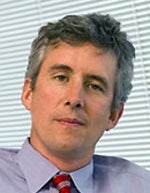A Competitive And Clean Economy
While Washington debates how to solve our budget problems, Massachusetts is demonstrating that we can innovate our way to a stronger, more sustainable economy.
Our state is known for revolutionary ideas that have helped lead the nation. Recent innovations in health care, education and civil rights have led the way for the rest of the country. We hope the next revolutionary breakthrough we’ll be known for is a clean and competitive economy.
Investing In The Future
In Massachusetts, business, government and community stakeholders are aligned in the belief that economic development and job growth can be fostered and generated by smart policies and public investments. Our state’s nation-leading plans for carbon reduction have been framed and implemented in a deliberate manner to drive competitive advantage, increase access to scarce capital, lower reliance on imported fossil fuels and put people back to work by building infrastructure.
Despite the severe recession, more than 4,500 jobs have been created in the Massachusetts clean energy sector. More than 60 megawatts of solar power have been installed or scheduled. Wind power has increased here by 10 times. Utility ratepayer investments in energy efficiency are projected to yield more than $6 billion in savings.
Each of these clean energy projects means local investment and jobs. For a state that lost 31 percent of its manufacturing workforce between 2000 and 2010, the Massachusetts clean energy sector has been laying a foundation for a new economy.
The state doubled down on its investment earlier this year by creating the Massachusetts Clean Energy and Climate Plan for 2020. Under this plan, Massachusetts will create tens of thousands of jobs and reduce its annual carbon emissions to 25 percent below 1990 levels by 2020. An energy policy that spurs investments in efficiency and renewable energy sources does two things. First, Massachusetts becomes less vulnerable to energy price increases and price volatility. Second, we are building a clean energy “cluster” of innovation and entrepreneurism that can serve the rapidly growing global market for energy efficiency and renewable resources.
Some argue that it’s too costly or risky for government to actively promote clean energy. In reality, the costs and risks of doing nothing are much higher.
The state’s Climate 2020 Plan is designed to keep money in Massachusetts and return it to businesses and households, which entices consumer spending and makes the commonwealth cleaner.
We believe those are objectives worth competing for — now more than ever. n
Mitch Tyson is the former CEO of industrial energy efficiency company Advanced Electron Beams. Roger Freeman is CEO of Solventerra, a clean energy development company. They are energy and environment co-chairs of the Boston-based Progressive Business Leaders Network.











0 Comments